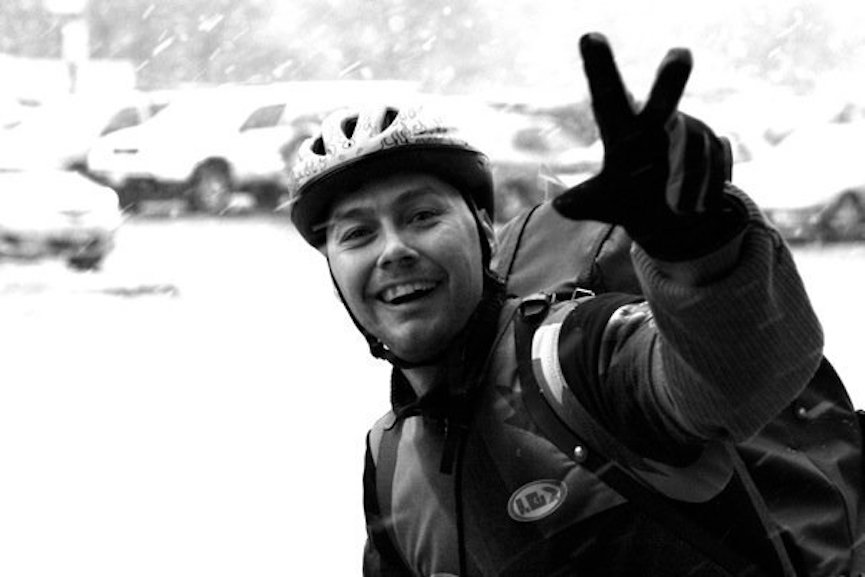Michael Bryant was named executive director of the Canadian Civil Liberties Association recently. It has been eight and a half years since his tragic, violent clash with bicycle courier Darcy Allan Sheppard on Bloor Street, that left Sheppard dead and Bryant arrested.
Nine months later a special Crown prosecutor recommended all charges be dropped, and they were. Bryant says he’ll especially focus on people who “live on and near the streets” and routinely have “their civil liberties violated.” That would have included Darcy Sheppard.
I found the appointment dismaying and insensitive but was reluctant to write on it for two reasons. I became a friend of Sheppard’s adoptive father, Allan Sheppard, after I wrote about the event and he responded by email. And I’m a friend of the previous CCLA director. For that matter I knew the CCLA’s founder, the late Alan Borovoy, from age 10, when he was my clubleader at Holy Blossom Temple.
I found the appointment insensitive because it almost deliberately insulted a large, partly Indigenous (Darcy Sheppard was Métis) and also often indigent community, including bicycle couriers, who’ve kept the case alive.
Bryant benefitted back then, rather obviously I’d say, from his recent status as Ontario’s Attorney General and his years of high-level connections. He had a PR team (the PR team for celebrity crises — Navigator) almost instantly in place. Despite his claims that the deck was stacked against him — in order to prove that it wasn’t — I demur. I attended the hearing when charges were dropped. It was annoyingly evident that this was Michael Bryant’s terrain, not Darcy Sheppard’s.
The book Bryant wrote not long afterward, took me by surprise and largely won my sympathy, even gratitude. There were moments in it that made me cry. It showed a striking level of honesty and self-awareness about his alcoholism and egomania, how the system is rigged and the “strategic” (his word) way he planned his life and career.
Bryant used the word, manipulate, for how he schemed to meet the chief justice and became her clerk. There’s only one moment in it that rang seriously false to me. He quotes his own public statement saying the episode had not been “a morality play … about class, privilege, and politics.”
Yet by his own account, it was. He didn’t have to go to bail court to be released, he had a PR team on the job swiftly, his friends brought a good suit for him to leave jail in, and he never faced a trial during which the issues in dispute about events that night could be tested under cross-examination.
The book’s acknowledgments begin by thanking three Supreme Court of Canada judges, one Ontario Supreme Court chief justice and an Ontario premier. For starters. He says while still in a cell that night he got a supportive message from the leader of the opposition in Ottawa, Michael Ignatieff.
So it’s a mix. Nothing new about that. His lifelong empathy and effort for Indigenous people also seem entirely genuine. He has every right to try to rebuild his life and make a difference. I’d have admired him and left it at that had he not gone on to apply for and get the CCLA job.
Leading the CCLA is like a version of the Order of Canada. It was founded by Borovoy and others like the late, luminous June Callwood, Canada’s best advocate if it’s ever called to account before a heavenly court. Heading it is a star turn, especially in legal circles and cultures like the Liberal party, to which Bryant belonged.
It belies his public claims about his new-found humility or rather, I should say, it contradicts them. We all contain contradictions, which we must somehow live through. At that point it would’ve been on the CCLA to do what he’d lost sight of doing for himself: staying out of the ego limelight, to practise the humility he claims to embrace — sincerely, I’d say.
All else aside, I think it was bad form for the CCLA to revert to a white male lawyer after two women directors, one of Quebecois background and the other racialized. What was in their heads? Well, the legal system has been under heavy fire lately, which makes me wonder if this was a bunch of lawyers saying, “Hey, the system works and this proves it: charged, released, restored.”
So I wish Michael Bryant well, but I wish it weren’t at the Canadian Civil Liberties Association.
This column originally appeared in the Toronto Star.
Image: Facebook
Like this article? rabble is reader-supported journalism. Chip in to keep stories like these coming.





